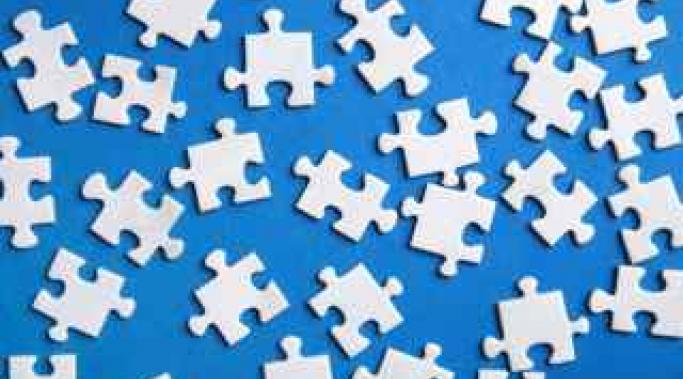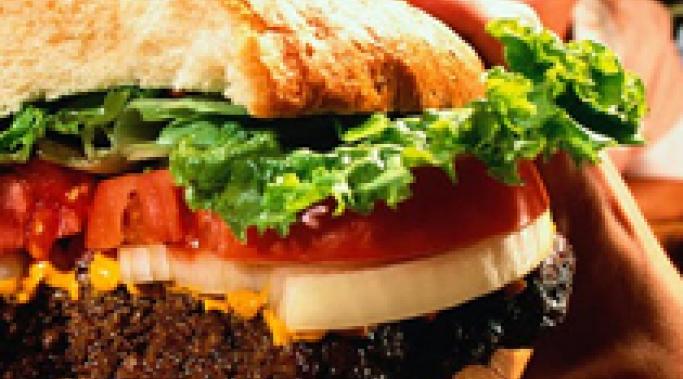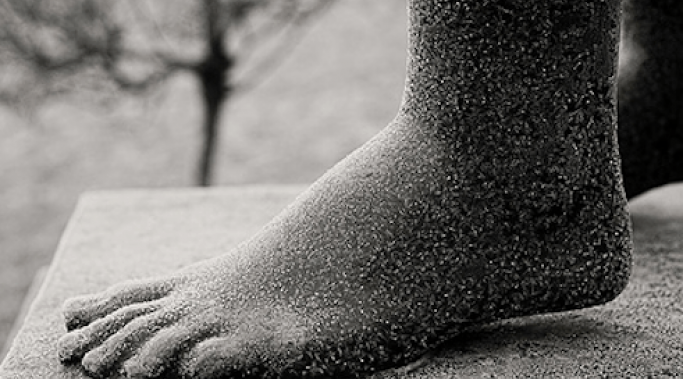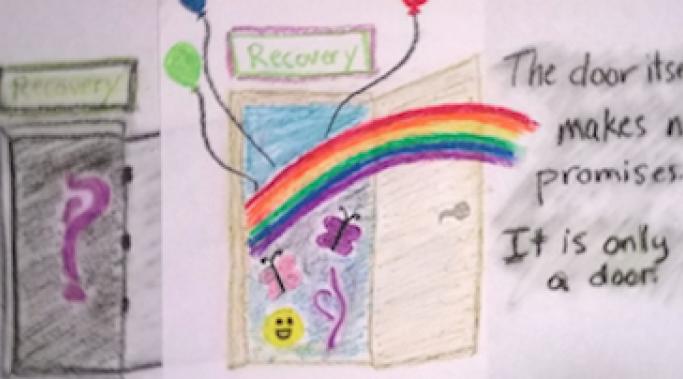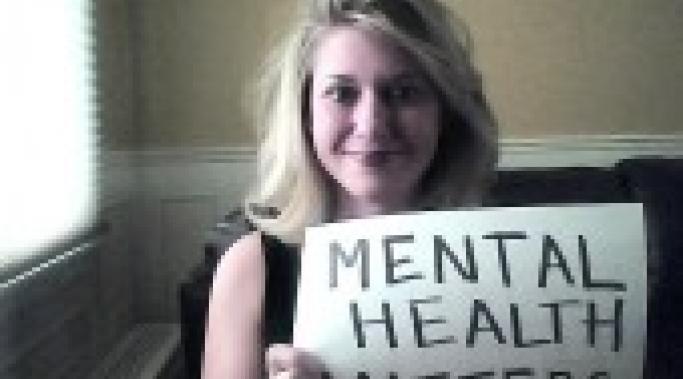I recently found myself doing quite a bit of traveling for work and being sleep deprived due to layovers, long flights and work related events. Inevitably, when it seems like my life is going too fast, I start feeling nervous about my food intake.
Eating Disorders Recovery
Being thankful in eating disorder recovery is not always easy and, sometimes, it's nearly impossible to find a reason to be thankful. Thankful that I'm still alive? Sure, but there have been days that breathing has seemed more of a curse than a blessing. Thankful for family? Oh, you mean those jerks who shipped me to an eating disorder treatment center halfway across the country and wouldn't let me come home? So thankful for them. (Sorry, Mom and Dad! But this was definitely a thought of mine.) But usually, if you look closely enough, you will find a lot of reasons to be thankful in eating disorder recovery.
In the context of peer support, I'm often asked about what eating disorder recovery means to me and how I 'got' here. Basically, I'm asked to sort of summarize the most important thoughts I went through while battling the disease; or now, looking back on it. I'm happy to share with you readers some of my most personal truths discovered along the way; things I know for sure about myself and about what my recovery was like, and also in regards to how I feel about my history with bulimia.
With the publication of the Fifth Edition of the Diagnostic and Statistical Manual of Mental Disorders (DSM-5), Binge Eating Disorder is officially recognized by the APA as an eating disorder. Whereas it had previously been relegated to the catch-all category of "Eating Disorder Not Otherwise Specified," Binge Eating Disorder is diagnosable as an eating disorder all its own - and it is finally acknowledged that not all people with eating disorders are your starving waifs on the runway. (In fact, only a small percentage are.)
For those who suffer from Binge Eating Disorder, it might come as a relief to know that there is actually something "wrong." It's not just that I lack self-control or don't exercise enough or eat "bad" foods. I have an eating disorder every bit as physically and psychologically damaging as Anorexia or Bulimia.
A lot of people I've talked to on my journey in and out (and in and out) of this eating disorder hell have told me that there are periods of the year that are more difficult for them because of eating disorder memories or landmarks. I often think of them as anniversaries. It's more than that general tension at holidays or the beginning of the school year - these anniversaries mark something (good or bad) and become a measuring stick.
Eating Disorders and Medical Conditions
At the beginning of the year, I wrote about how eating disorders will often come along with other psychiatric disorders and how important it is to stay on top of both of them for your recovery. However, some of the complications in eating disorder recovery can also come from medical concerns. (Eating Disorder Health Problems and Complications) Plenty of diseases have dietary implications and if you're not ready to tackle both, either your physical health or your recovery will suffer.
The range of medical issues we're talking about here is vast. Sometimes it's an intolerance to something and sometimes it is something more serious, like diabetes or another endocrine disorder or a severe food allergy. Regardless, it can make eating disorder recovery a little more complicated. As if it weren't complicated enough, right?
Happy Halloween, y'all! While I always greatly enjoy seeing what the kids in the neighborhood dress up as, there is one thing I am less excited to see in disguise: my eating disorder. Symptom switching is your eating disorder's way of sneaking back into your routine. In the past 14 years, one thing I have learned is this: the eating disorder never stays the same.
In a lot of ways, "eating disorder recovery" is a sort of vague, amorphous thing. How many times have you (or your loved one) said, "I just want to be recovered already!" Or is that just me? In one of my journals from early recovery I wrote, "I want a magic pill, a prayer, a chant -- something I can say or do and wake up the next morning and be normal."
I suffered from a mental illness for many years and at the time, felt powerless against it. My eating disorder, bulimia consumed every aspect of my life. Now 5 years into the recovery process, I stay recovered by maintaining a level of self-care that goes way beyond simply avoiding triggers and practicing coping skills. Without self-care, my recovery would be compromised.
Having a list (or shoebox) full of coping skills is awesome -- if it's nearby when an urge strikes. So what happens when you're driving home after work? Or hanging out at the mall killing time? Those coping skills you have on your shelf at home aren't going to do you any good -- which is why you have to have go-to coping skills for on-the-go, too.
